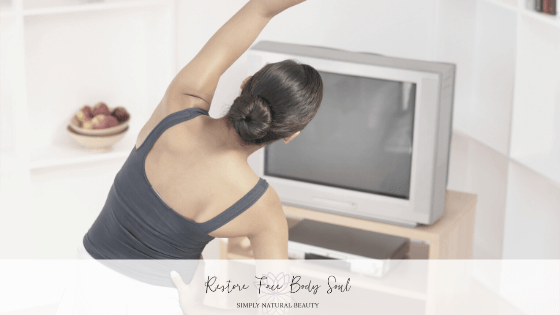Why you should be exercising now and how to get started
Exercise doesn’t mean bootcamp and “no pain no gain workouts”.
The most essential part of any healthy lifestyle is exercise. But it doesn’t mean that you need to push yourself to the limit.
Exercise is anything that gets you moving.
Making movement a priority is a key to establishing a regular healthy habit. Plan your day around fitting in at least 30 minutes of exercise / movement five times each week.
While the most popular benefit of regular exercise is weight loss, there are other significant benefits for your health.
Exercise can improve cardiovascular health, lower blood pressure, help with weight loss and maintenance and protect against a variety of diseases. It can help to boost your immune system and keep your bones healthy and strong.
How does exercise help to boost your immune system and keep it healthy?
Regular exercise is vital for good health - which is critical for a healthy immune system. It increases your circulation, allowing antibodies and white blood cells to circulate faster. It may help flush bacteria out of your lungs and airways. This can reduce your chances of getting a cold, flu, or other illness. The brief rise in body temperature during and right after exercise may help prevent bacteria from growing. (like what happens when you have a fever).
Exercise can help with balancing, suppressing and increasing your hormones.
Excess estrogen, insulin and cortisol are the hormones responsible for weight gain, while HGH, testosterone and progesterone are the ones responsible for keeping us lean. Leptin is another hormone, which, when too low, signals your body to store fat. Your body produces leptin while you sleep, so lousy sleeping patterns can drastically lower the levels. Jenni Rivett , Personal Trainer
Boost Your Mood
Exercise is like a natural antidepressant, helping to boost your mood by increasing your endorphins. These “feel good” hormones flood your brain while you exercise, and continue for hours even after your workout has ended. It doesn’t have to be high intensity either. Even low-intensity activities have mood-boosting benefits. So start by taking a walk!
Improve Your Sleep
Regular exercise can benefit your sleep by helping to strengthen your circadian rhythms. Irregular rhythms impact your rest and how refreshed you feel when you wake up.
A recent National Sleep Foundation poll found that those who exercised regularly were more likely to report sleeping well than people who were not physically active. Research has shown exercise can help to improve not only the quantity of sleep but also the quality: studies show daytime physical activity may stimulate longer periods of slow-wave sleep, the deepest and most restorative stages of sleep. Psychology Today
Make Small Changes
Like anything else, exercise is a habit developed over time. Don’t be afraid to start small.
If you can’t commit to 30 minutes of exercise at once, then break it down into smaller chunks. Start taking steps to work towards 30 minutes of exercise 5 days a week.
While we’re #staying at home, now is the perfect time to start making exercise a regular part of your day.
I’ve put together some ideas for you to try. I’ve chosen different styles and different levels. Some are a few minutes, and some are longer. They’re all free on Youtube, so give them a try to see which is your favourite.
You can download a PDF list with links or use this playlist from Youtube.
What type of movement will you commit to for the next week?
Share it on the Facebook page, and I’ll help you to stay accountable. You could also offer encouragement to someone else or get some more ideas of different ways to get your daily 30 minutes of movement.

